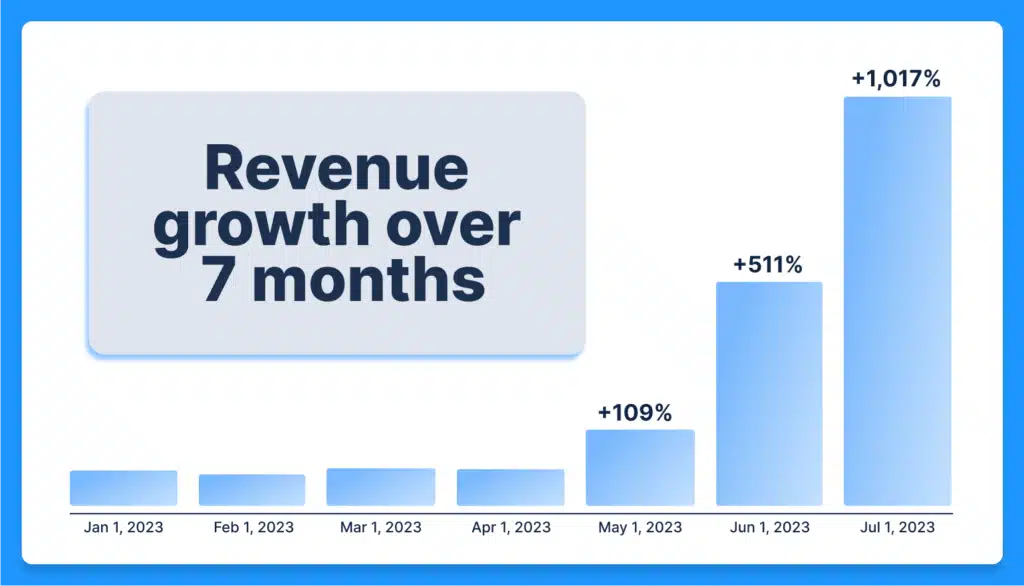In a mobile game ecosystem over-crowded with clones, the story of SWAGFLIP – Parkour Origins stands out in a big way. Its creator, Jordan Ross, managed to create the massively successful casual physics game (which you won’t be able to stop playing) as a newbie developer…on his first attempt! On top of this, he was able to turn the game into a financial success with a little help along the way from Mijiba. But how did a solitary indie developer manage to navigate the crowded ocean of other games and come out ahead? Let’s dive in!
Jordan Ross’ journey started in business school, a setting far removed from Unity scripts and game loops. Yet struck by the viral impact and potential profitability of indie giants like Flappy Bird, Jordan caught the game development bug. Recalling his thinking early on: “The idea was to create something challenging, addictive, easy to expand, and with very few systems to engineer so that I could complete it in a couple of months.”
Simplicity was critical; the game had to be engaging yet not overcomplicated. It was a key insight that cuts to the heart of what makes games succeed. Any iconic mobile game, beneath all the polish and bells and whistles, relies on a really fun, often very simple, core game mechanic.

However, as Jordan’s journey began, so did the challenges. Stepping into coding posed its own difficulties. From level design to core mechanics, everything was a steep learning curve. Yet unlike many new developers who often feel they need to do it all themselves, Jordan had the pragmatic business sense to know when he needed help along the way, such as hiring freelance designers and artists to help build levels. This allowed him to launch sooner; to get the game in front of players as early as possible. It was yet another smart move on his part–rather than drag out the production stage solving imaginary problems, he was able to get real player feedback, learn fast under pressure, and start bringing in revenue.
After the launch, SWAGFLIP saw an initial surge in downloads but soon plateaued. Instead of panicking, Jordan made calculated moves to boost organic installs. Notably, he tweaked initial game levels to ease the learning curve for newcomers. The result? A substantial uptick in key metrics—retention, playtime, and reviews all saw marked improvements. Ross offers a pro tip to new developers: “Start tracking your level completion metrics early on.”

It may seem obvious, but you can’t fix what you don’t measure. When you’re measuring the right things, like eCPM, retention, ARPDAU, etc., you can spot changes in player behavior and make changes accordingly. When you make that change, you can track how effective it was, like watching ripples on the surface of a lake when a stone is thrown in.
So yet again, Jordan’s business acumen has served him with the instincts to outperform the competition. Hardly a fluke.
Never one to settle, and with a careful eye on his revenue metrics, Jordan eventually came across Mijiba, a game growth company that partners with developers and studios to grow their games at every stage of the journey, from monetization through publishing, and IP licensing. After learning about Mijiba’s co-CEO Henry Fong and his years of experience in the mobile gaming industry, Ross decided to implement Mijiba’s growth intelligence and monetization SDK. He hasn’t looked back since.

Switching to Mijiba bore fruit almost instantly. Speaking on his experience: “I’ve been using Mijiba’s growth intelligence platform for a while now, so I’ve been lucky enough to watch it evolve and I’m always impressed with the speed of implementation of new features and design. They are extremely receptive to feedback and the user experience gets better every month.”
Jordan credits Mijiba for helping him establish a well-rounded, continually evolving monetization approach that has helped SWAGFLIP thrive.
With a bright future ahead, and hopefully many more successful games to come, Jordan has some great insights when it comes to building games that succeed. Here are a few:
Looking forward, Jordan is far from done. Two fresh releases are slated for the next year, and if his past endeavors are any indication, they’ll certainly be worth the wait.
The success of SWAGFLIP is a testament to the power of smart decisions, be it in organic growth strategies, constant experimentation, or strategic relationships with partners like Mijiba growth intelligence. If you’re struggling to find that next level of growth with your games, take a page from Jordan’s book. Get help from a partner with over ten years in the mobile gaming industry, and billions of players to show for it. To start your game growth journey, book a call with Mijiba today.